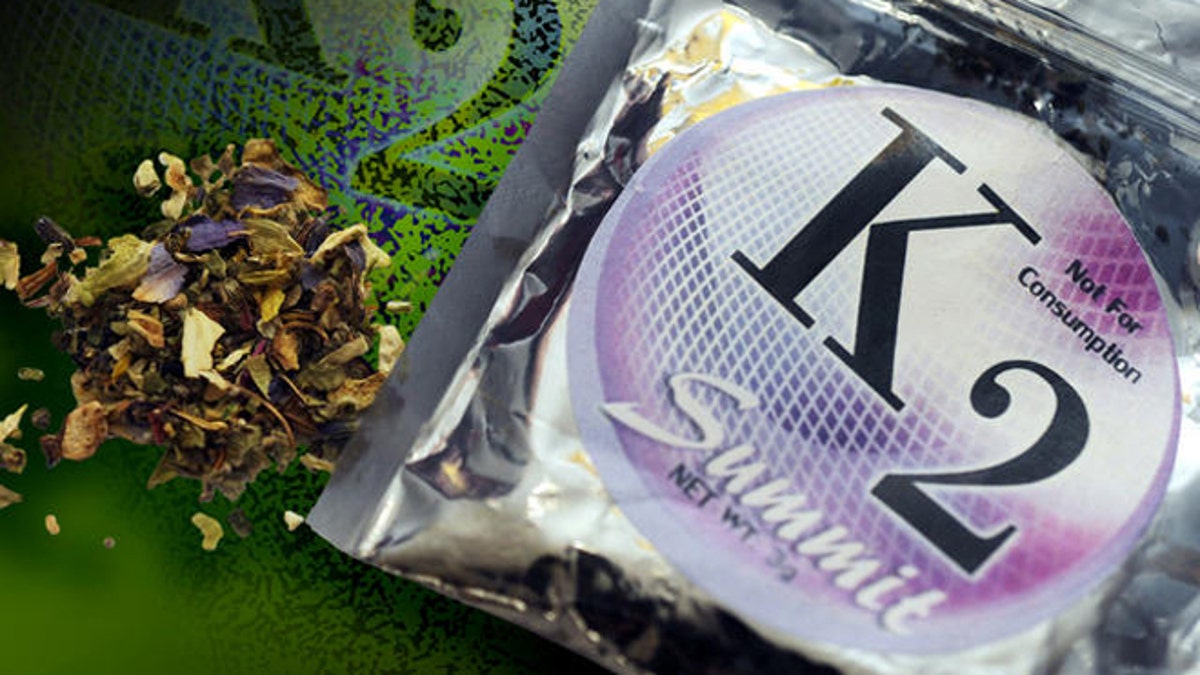
This Feb. 15, 2010, photo shows a package of K2 which contains herbs and spices sprayed with a synthetic compound chemically similar to THC, the psychoactive ingredient in marijuana. State lawmakers in Missouri and Kansas have introduced bills which would create penalties for K2 possession similar to those for marijuana.(AP Photo/Kelley McCall) (AP Photo/Kelley McCall)
In the old days, if you wanted to score some drugs, you would head down to your local street corner, back alley or barroom to meet up with a shadowy man and hand over a wad of bills for your dope.
Now users are just one click away from their high. And most of it is legal.
With the advent of the Internet, smartphones and online shopping, it is easier than ever to find drugs.
According to a report issued by the European Monitoring Centre for Drugs and Drug Addiction (EMCDDA), there has never been more online retailers selling “legal highs” than ever before and new synthetic drugs are hitting the market at a rate of one per week.
The Internet is a global marketplace and online shops selling new substances appear to have their origins in many countries.
Drugs like the naturally occurring hallucinogenic Salvia, along with synthetic marijuanas such as Spice, have become popular sellers for online “legal high” retailers. There are also retailers that sell psychedelic mushrooms and the veterinary tranquilizer ketamine.
- Are Cholesterol Drugs Over-Prescribed?
- Immigrant on Drugs Shows up to Job Interview Naked and Fights Cops
- Global Effort to Fight Illegal Drugs Hampered by Violence and Corruption, Says Report
- Biden Discusses Drugs and Violence with Central American Leaders
- Mexican Traffickers Use Minors to Carry Drugs into U.S.
- Best Pix of the Week
- Best Sports Pix of the Week
- Mexicana Flight Attendants Turned Calendar Girls Feud after Success
“The Internet is a global marketplace and online shops selling new substances appear to have their origins in many countries,” the EMCDDA report stated. “However, market behavior and preferences are not necessarily global, as many product lines appear to target specific geographical markets. For example, the product ‘Kronic’ is almost exclusively sold by Australian and New Zealand-based operators.”
The report also found that over 50 new types of synthetic drugs have been detected in the European Union so far in 2012, which is up from 24 in 2009. It also found 693 online shops in January 2012 selling synthetic drugs, compared to 314 in January 2011 and 170 in January 2010.
Besides Europe, some of these drugs, especially salvia, ketamine and mushrooms, are very popular in the United States and there are reports that the party powder 2C-B is the drug of choice for Colombia’s elite.
Despite the prevalence of these drugs around the globe, there is very little known about the side effects of these substances and the long-term effects on the body.
“There is a need to better understand the possible acute and chronic health implications of the use of new substances,” the report stated. “Medical care for acute toxicity is required, but there is also a need for specific training on medical management of individuals who become unwell within recreational settings and guidance on when pre-hospital emergency services should be called.”
Follow us on twitter.com/foxnewslatino
Like us at facebook.com/foxnewslatino
